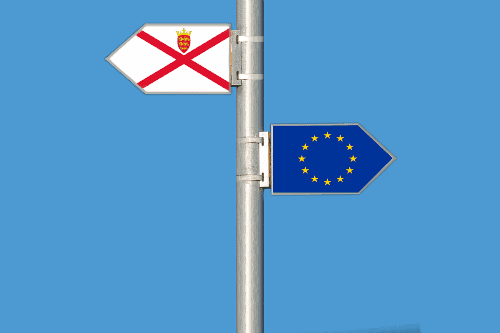
The first rule of the Prime Minister’s Brexit negotiation is clarity. However, as the Chief Minister told the House of Lords Brexit Committee last year, Jersey’s economy is “diverse and our relationship with Europe is broad and deep.” As we manage this change, how will the three biggest Brexit implications for the digital sector, as researched by techUK, impact Jersey – and is the way forward even a little bit clearer?
ISSUE 1: SINGLE MARKET ACCESS FOR DIGITAL SERVICES
Trade in digital services represents the most immediate market risk to the UK. The Prime Minister says she wants the freest possible trade in services with EU member states; but EU trade policy with countries outside the Union has traditionally not been that liberal. As techUK points out, this is a problem for the UK because 81% of digital sector exports are in services, representing 46% of total UK services exports, approximately one-third of which are with European partners.
For Jersey’s digital firms, this is business as usual. We are already outside the EU for trade in services and our market access is not governed by trade-tariffs, but with regulation such as AIFMD and MiFID – regulations unlikely to change anytime soon. So Digital Jersey supports the States of Jersey’s aim to preserve the substance of its current relationships with the UK and EU.
ISSUE 2: ACCESS TO TALENT
Access to a highly skilled workforce is vital, but Brexit puts our future pipeline of talent at risk. According to techUK, 10% of the UK workforce are now in the digital sector; 18% of this workforce are foreign born, with one third coming from EU countries. These workers are highly skilled with wages much larger than the UK average.
Jersey is moving in the right direction when it comes to attracting digital businesses. As of early 2016 there were 40 active digital businesses which had relocated to Jersey, employing 212 staff. Visa applications now include digital skills as a work category due to our efforts, and we are working closely with digital businesses to help secure work licences for those who will add the greatest value to our digital sector. We are also working with Locate Jersey to speak with promising entrepreneurs looking for a well-connected and welcoming place to take their business.
However, the UK may still decide to apply further restrictions on immigration and the States of Jersey are in discussions with the UK Government on how these might best fit with Jersey’s needs.
ISSUE 3: FREE FLOW OF DATA
Data flows underpin a modern economy and according to techUK an estimated half of the world’s trade in services is enabled by technology. 11.5% of global cross-border data flows transfer through the UK and a massive 75% of the UK’s cross-border data flows are with EU countries. Brexit is certainly going to place this at risk, primarily due to new EU data protection regulations. Countries outside the EU need to demonstrate “adequacy” with the regulations, however the European Commission haven’t determined what adequacy means yet, so this is another known-unknown.
Data flows into Europe are vital for Jersey’s digital businesses, as we’ve built one of the most connected data locations in the world. We have complete 4G mobile network coverage, several state-of-the-art data centres and by mid-2018 every broadband connection will be gigabit fibre. We’ve also installed a cutting-edge LoRa network which will allow businesses to test the next generation of Internet of Things applications in areas such as air quality control or traffic monitoring.
Thankfully Jersey already proves its adequacy with existing EU data protection legislation, and looking ahead, the States’ of Jersey’s Digital Policy Framework has committed to enacting an updated data protection regime by May 2018 which will meet new EU standards.



